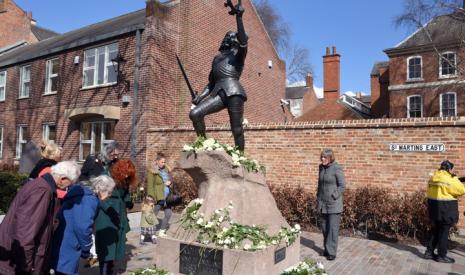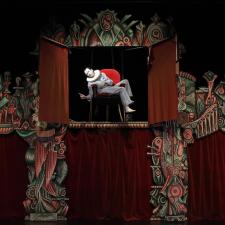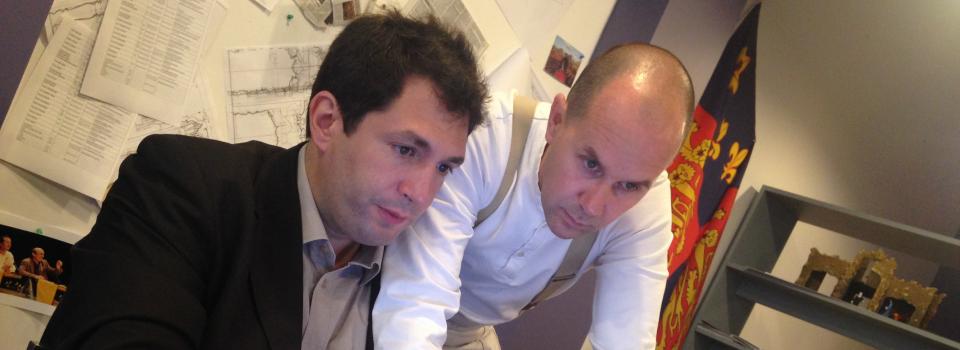
Richard III – Loyaulté me lie # 10
Translating Richard III (3/3)
Shakespeare’s words conjure up things for us to hear, to dream, to laugh about – they also, perhaps more importantly, allow us to see. What is essentially at stake in this translation is how we express this art of seeing, transcended here in a radical opening of our eyes, supported by visionary audacity and boundless imagination. Shakespeare’s visions blow the frames of reality to pieces, and with them, the base of normality and the boundaries of decorum. The poet exposes and glorifies all that we will not see elsewhere, in life or in theatre, on or off stage. He honours it, brings it to life and doing so, he enthrals us. He dares to write everything – and nothing. Nothing can stop him.
He is not concerned by unity of time; in Macbeth already, time was fused, in a way that is characteristic to how nightmares feel, where the universe is condensed in a series of short-circuits. In Richard III, over a decade of historical actions is concentrated in a mad rush that leads to the world’s annihilation and the implosion of the self. When Macbeth was a poem of initiation to crime, Richard has the incandescent quality of a joyful eulogy, celebrating the pleasure one might find in doing evil. This is what Jean Lambert-wild and Élodie Bordas explore in their performance, with a delight and precision that allows them to unfold all its flavours, under the attentive and watchful guidance of Gérald Garutti and Lorenzo Malaguerra who both wish to be extremely precise in the way they direct the play.
Questions of decorum and decency do not stop him either: for instance, it would have been forbidden to represent the murder of children on stage - a crime that the historical Richard III is accused of: he is considered guilty of having ordered the assassination of his own nephews, in order to become king. In our production, we show this murder with the playful horror that this diabolical Joker conjures up. He is the heir of Vice, the medieval allegory, as much as he is Renaissance’s gorgeous monster, fascinating in his seduction and immorality.
Finally, he is not concerned with being psychologically believable, as exemplified by Lady Anne’s sudden change of heart. That inaugural enigma sees the tearful widow suddenly betrothed to her husband and father-in-law’s loathed murderer, that same “hedge-hog” she jeered so much a minute before. Far from shying away from how mysterious this inexplicable conversion seems, from absolute loathing to consented union and the promise of love, Shakespeare explicitly highlights its opacity. From the opening monologue, Richard announces his impossible, his unthinkable design, hatched for a reason kept ostensibly hidden:
“For then I'll marry Warwick's youngest daughter.
What though I kill'd her husband and her father?
The readiest way to make the wench amends
Is to become her husband and her father:
The which will I; not all so much for love
As for another secret close intent,
By marrying her which I must reach unto.”
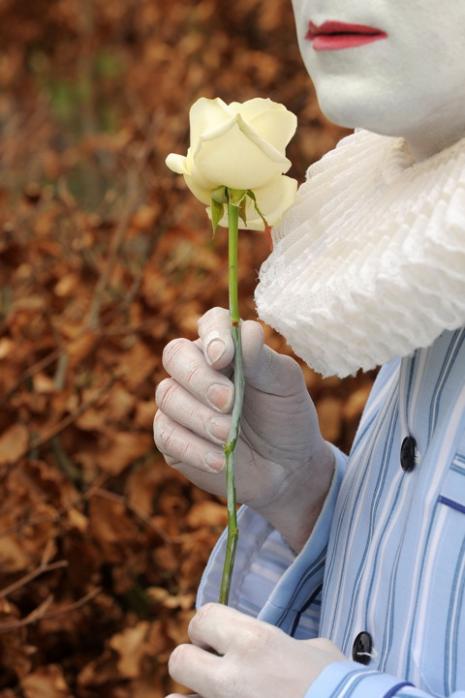
This “secret close intent” is real black hole at the Self’s core. With it, everything that was impossible can be done, it opens a breach that gives birth to all sorts of monstrous acts. After the events, the Bard gifts another monologue to his protagonist, in which this unthinkable pretender assesses and boasts about his tour de force in front of an audience whom he defies as much as he entertains. It is as if he was attempting, with the unexplainable dimension of his prowess, to precipitate a complex alchemy made of complicity, admiration and repulsion.
“Was ever woman in this humour woo'd?
Was ever woman in this humour won?
I'll have her; but I will not keep her long.
What! I, that kill'd her husband and his father,
To take her in her heart's extremest hate,
With curses in her mouth, tears in her eyes,
The bleeding witness of her hatred by;
Having God, her conscience, and these bars against me,
And I no friends to back my suit withal,
But the plain devil and dissembling looks,
And yet to win her, -all the world to nothing!”
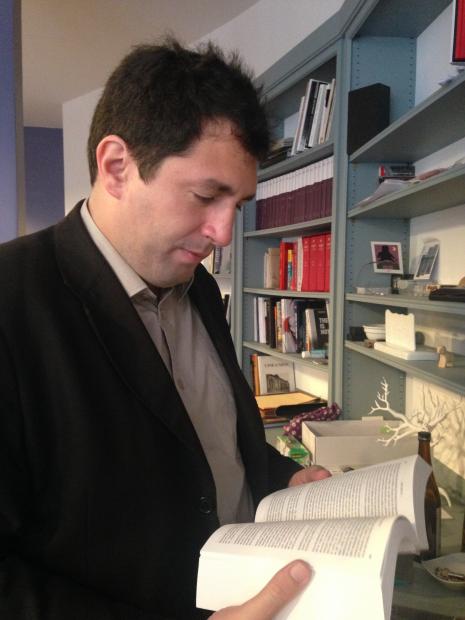
Shakespeare builds a theatre made of impossible gambles that are won, against all odds. This is the asymptotic horizon we follow in our translation, It remains sensitive to the power of such unconceivable visions.
- Richard III – Loyaulté me lie # 01
- Richard III – Loyaulté me lie # 02
- Richard III – Loyaulté me lie # 03
- Richard III – Loyaulté me lie # 13
- Carnet de bord # 16 Richard III – Loyaulté me lie
- Carnet de bord # 17 Richard III – Loyaulté me lie
- Carnet de bord # 18 Richard III – Loyaulté me lie
- Carnet de bord # 19 Richard III – Loyaulté me lie
- Carnet de bord # 20 Richard III – Loyaulté me lie
- Carnet de bord # 21 Richard III – Loyaulté me lie
- Carnet de bord # 22 Richard III – Loyaulté me lie
- Carnet de bord # 23 Richard III – Loyaulté me lie
- Richard III – Loyaulté me lie # 04
- Richard III – Loyaulté me lie # 05
- Richard III – Loyaulté me lie # 06
- Richard III – Loyaulté me lie # 07
- Richard III – Loyaulté me lie # 08
- Richard III – Loyaulté me lie # 09
- Richard III – Loyaulté me lie # 10
- Richard III – Loyaulté me lie # 11
- Richard III – Loyaulté me lie # 12
- Richard III – Loyaulté me lie # 14
- Richard III – Loyaulté me lie # 15
- Richard III – Loyaulté me lie # 16
- Richard III – Loyaulté me lie # 17
- Richard III – Loyaulté me lie # 18
- Richard III – Loyaulté me lie # 19
- Richard III – Loyaulté me lie # 20
- Richard III – Loyaulté me lie # 21
- Richard III – Loyaulté me lie # 22
- Richard III – Loyaulté me lie # 23
- Richard III – Loyaulté me lie # 24

